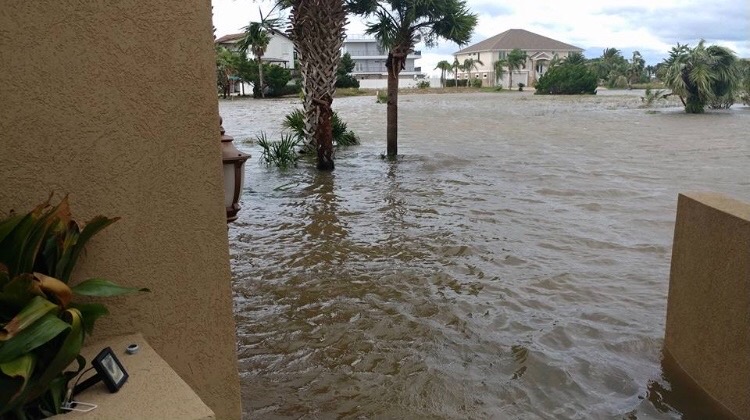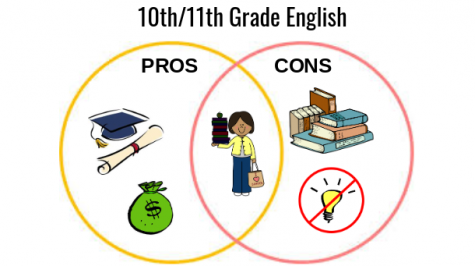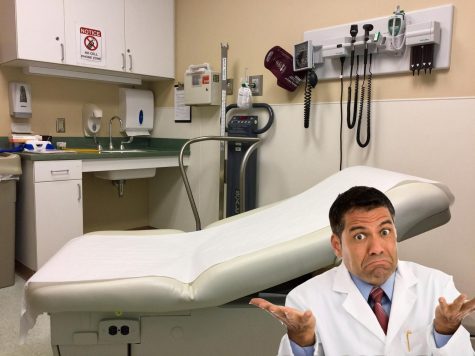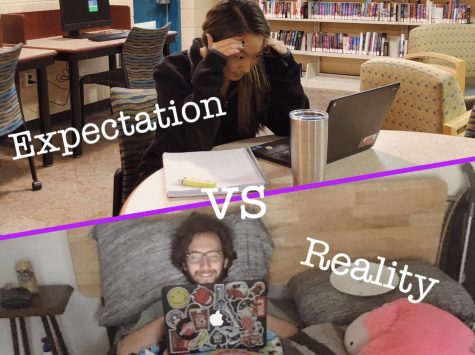My Family lives in the path of hurricanes: Why don’t they move?
The view from my family home in St. Augustine Florida after Hurricane Matthew.
When I heard that Hurricane Dorian had caused more disaster to already struggling cities, I was not surprised.
I remember listening to my grandmother tell me stories after Hurricane Michael, of how she and my uncle stood knee deep in disgusting smelly, dirty water bubbling into the basement of my family home and running down the streets of Vilano Beach, Florida.
I lived in that home for eight years. Even though I now live in Maryland, I am a Floridian at heart.
I love Florida, but I can´t help but wonder: Is there even a point to keep building homes and businesses in Florida when by 2060 it could all be washed away?
The question is becoming more real for me because we still have a house in Florida. I moved from Florida partially due to the constant worry about frequent tropical storms. A few of my family members are still In St. Augustine, and every year around September, nearby hurricanes are in the news.
My mom and her two siblings moved to a new school every few years when they were teenagers. Moving as much as they did as children caused emotional stability and behavioral problems. When they turned older and made their own decisions, they decided to live in Florida permanently. My grandmother does not want to leave her family, so she stays where majority of them are.
Relocation Depression occurs when children and adults move often and miss when they moves from and consider it ¨home¨. They feel out of place.
¨I don´t ever want to move, this is where my family and friends are. I have roots here now. I move to Maryland four years ago and I ended up regretted it, so I moved back.¨ said Audra Hull.
The intensity and frequency of North Atlantic hurricanes have increased since the early 1980´s. The Union of Concerned Scientists predicts that hurricane intensity and rainfall are expected to increase as the climate continues to warm.
Climate change is influencing the growing number of hurricanes every year. When I was born, near the turn of the century, that year eight hurricanes and tropical storms caused 6,270 deaths and cost more than 60.9 billion dollars in damages. In 2018, more than 13 hurricanes hit around the United States, ranging between category 3-5 causing 862 billion dollars in damages.
The Saffir-Simpson Hurricane Wind Scale is a 1 to 5 rating, based on a hurricane’s sustained wind speed. A Category 5 hurricane has wind speeds, at least 137 knots (170 mph) With such high wind speeds, the amount of damage is catastrophic. Well constructed homes can be reduced to rubble. Trees and power lines will be ripped out from the ground.
For low income families, their more temporary homes can be washed away. Often, they are not able to fix or rebuild due to lack of money.
Insurance companies can only do so much when it comes to disaster funds. American taxes go towards disaster relief and recovery, but even after insurance and tax money, some homeowners don’t have enough.
Hurricane Dorian cost insurance companies between 1 to 3 million dollars in damages.
Florida leads the nation in the number of flood policies, according to the National Flood Insurance Program, with about 1.8 million policies in force in 2017.
Nearly three million homes in Florida were at risk in 2018 for storm surge damage from hurricanes up to Category 5 strength. These homes would cost $552.4 trillion to completely rebuild, including labor and materials.
Currently more than 22 million people are citizens of Florida, more than 89% of Florida citizens live in flood zones.
What should we do? The extreme things to do is to stop thinking about Florida as a place to live. Before air conditioning, not many people lived in Florida due to high temperature and humidity. It was like living in a swamp.
The emotional feel of “home” is detaching us from rational thinking. Obviously, I am not able to think rationally about this because I plan to apply to college at Flagler College in St.Augustine, Florida.
When you think of Florida you think of the sunshine and the beach. That’s what calls out to people to make them move in the first place. The moderate response is to slow down building, but the wrong thing to do is to ignore the real issue and keep building in these areas.
Your donation will support the student journalists of Linganore High School. Your contribution will allow us to purchase camera/recording equipment and cover our annual website hosting costs. We hope to raise enough money to re-start a monthly printed issue of our paper.













Papa • Sep 28, 2019 at 9:36 am
Great article!